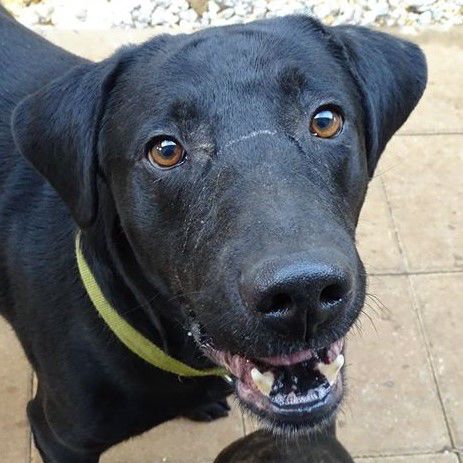Pets and the People Who Love Them
Published 6:00 pm Wednesday, March 4, 2020

- Marco is a large black Lab mix who is active, well-adjusted and very sociable. He's a gentle big boy who loves people and would like to meet you.
Dogs and cats can be mischievous — getting in cupboards, jumping on tables and countertops, and helping themselves to whatever they find on an unguarded plate. What might be amusing or even annoying can turn into a tragedy if your pet gets hold of the wrong thing.
The Alabama Veterinary Medical Association (ALVMA) wants to remind you March is National Pet Poison Awareness Month and ask you to take this opportunity to make yourself aware of the risks your pets face from poisons in and around your home.
Some of the most common toxins to which pets often have access include:
• Foods — chocolate, grapes, raisins and xylitol (often found in sugarless gums, candies and mints);
• Insecticides — sprays, baits and spot-on flea and tick treatments;
• Mouse and rat poison;
• Medications, including nonsteroidal anti-inflammatories (Motrin, Aleve, etc.), antidepressants, acetaminophen (Tylenol), and pet medications;
• Household cleaners — sprays, detergents and polishes;
• Fertilizers — bone meal, blood meal and iron-based products; and
• Plants and flowers — including azaleas, lilies, dieffenbachia, daffodils, Lily of the Valley, tulips, and hyacinths. Visit aspca.org/pet-care/animal-poison-control for a more complete list.
If you think your pet came into contact with a poison, call your veterinarian immediately. Poisons are fast-acting and can be fatal, so do not hesitate if you see any indications of poisoning, such as vomiting, diarrhea, excessive drooling, lack of appetite, nausea, coughing or vomiting blood, weakness, lethargy or collapse.
The ALVMA encourages pet owners to take preventative measures to avoid poisoning accidents. Listed below are some useful preventive tips for pet owners:
• Be familiar with poisonous items by checking the list at www.petpoisonhelpline.com;
• Do not leave medicine bottles within reach of pets (dogs can quickly chew through a pill bottle);
• Purchase or create a pet poison first aid kit. Don’t treat your pet for poison without first discussing with your veterinarian or the experts at the pet poison helpline, as the treatment depends on the type of toxin;
• Know the signs of poisoning in your pet;
• Be especially careful during holidays with candy;
• As spring approaches, be aware of any harmful plants and gardening items that could cause your pet harm; and
• Last, but not least, always keep the number for your veterinarian and the nearest emergency vet hospital in a handy location.
Visit the ALVMA website at www.alvma.com for more information on how to protect your pets from toxins.
To adopt a dog or cat, please visit us at 1701 U.S. 72 (behind Limestone Veterinary Clinic), visit our Facebook page or call us at 256-771-7889.





